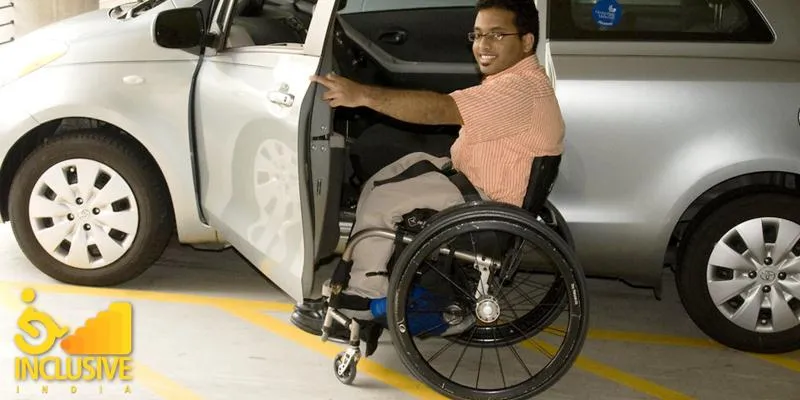What startups and companies can do to become disabled friendly
There is a huge pool of untapped potential talent that will help India to grow through innovation and creativity. By including people with disabilities in the workforce the economy can benefit from their contribution.

Diversity and inclusion have become important hiring trends globally. Organisations are seeing diversity and inclusion as an essential part of their strategy to improve culture and competency within the organisation, drive performance of their employees, improve the brand perception and define corporate purpose. With increased awareness and sensitivity around diversity and inclusivity, employees now consider it as a mandatory part of the work culture, even translating it into an employee-friendly and flexible workplace.
This discourse has come a long way and made some significant strides, thanks to the work of organisations like National Centre for Promotion of Employment for Disabled People (NCPEDP) and initiatives like the Hellen Keller Awards. However, employment opportunities for people with disabilities (PwD) is still a concern. Though mainstream employability for PwD is part of the worldwide agenda, the needle in terms of implementation is yet to move.
The Planning Commission of India pegs the population of people with disabilities at five percent of the total population. A report by the World Bank puts these estimates to about 40-80 million, which constitutes between four and eight percent of India’s population.
Given this context, inclusion and employability of PwD is not only crucial, but it is an important developmental indicator of any country. There has been a shift in policy in the recent years and is demonstrative of a changing mindset towardsPwD. It is heartening to see more and more organisations in India taking conscious steps to adopt practices and policies that are inclusive of PwD.
In general, the employment of PwD remains a challenge due to lack of awareness and ranking low on organisational priority. Organisations are unwilling to invest in the infrastructure, training costs and other facilities that enable PwD.
The first step towards ensuring greater inclusivity is for organisations to recognise the magnitude of the problem and start thinking in the right direction. For any company that wants to provide equal opportunities, there are three essential aspects that need to be factored in:
- Organisational policies
- Accessible infrastructure
- Willingness from PwD to learn and grow.
Organisations should ensure that there is a well-thought-out-and-written policy for the inclusion of PwD. They should consciously make institutional and structural changes to accommodate PwD. Involvement of the top management in spearheading such changes is extremely crucial to emphasise their commitment and sincerity.
A robust HR system should be in place for assessing, recruiting and onboarding PwD. It is essential to ensure a match between their skill sets and role. Further, there is a need to develop a strong and sensitive support system to improve productivity. Managers and team mates should be sensitised to help them feel accepted as part of the team. Flexible work hours, a council to address their grievances, creating awareness on governmental benefits such as taxes, pensions, special allowances should be established and communicated within the system.
Ease of access and infrastructure is an essentiality. Identification and provision of mobility needs such as wheelchairs, walkers or the appropriate assistive technology are necessary. Lack of facilities such as ramps, special washrooms etc., tend to become a deterrent for PwD and therefore investments should be made to build these facilities.
However, despite there being qualified and capable PwD, a large percentage of them are still unemployed. The challenge lies in the constructs of our society. These range from lack of education to limited access to resources. People with disabilities often fear discrimination and prejudice. Disability, most often than not, is associated with incapacity, inadequacy, negative imagery and stereotypes. With such social attitudes, PwD find it difficult to get away from the vicious circle of lack of education, skills, low confidence, low employability and poor economic status. Therefore, the first step to tackling these challenges is to raise awareness and battle negative attitudes.
A myth that PwD are unproductive and unqualified have been disproven by several studies on this topic. In fact, it has been proven that they exhibit strong loyalties and low rates of absenteeism. Research by Deloitte and other academic institutions demonstrates that diverse and inclusive teams are more innovative, engaged, and creative in their work.
The Government of India has drafted several policies and acts that encourage employment of PwDs both under the private and public sector. Anti-discriminatory laws have been put in place, hiring quotas, reservations and special schemes have been imposed to ensure greater inclusivity.
There is a huge pool of untapped potential talent that will help India to grow through innovation and creativity. By including PwD in the workforce they can contribute to the economy through positive social progress. Engagement of PWD optimises human resources, contributes to the GDP, promotes human dignity and, therefore, helps societies flourish.







